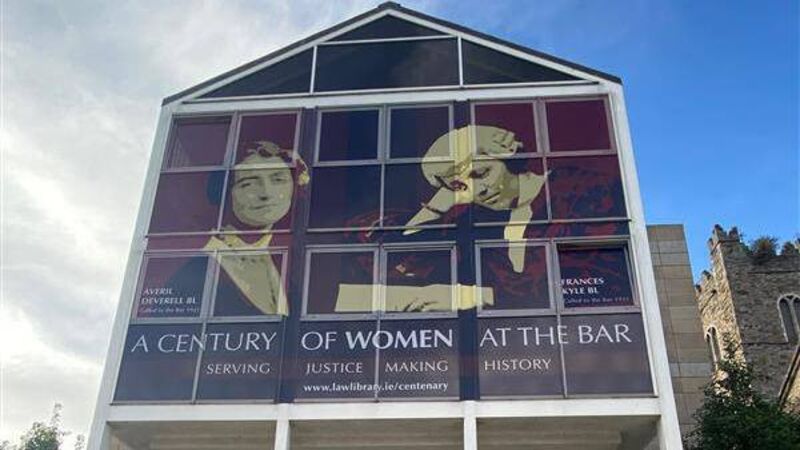Clodagh Finn: Three windows on the good, the bad, and the ugly of Irish justice

An image of Averil Deverell and Frances Kyle, the first female barristers to be called to the Irish Bar 100 years ago, which graces the Bar of Ireland offices on Church St in Dublin.
On Monday, two milestones caught my eye. The first was the uplifting celebration of the first female barristers to be called to the Irish Bar 100 years ago.
An image of Frances Kyle BL, from Belfast, and Averil Deverell BL, from Wicklow, graced the Bar of Ireland offices on Church St in Dublin as part of a wider project to honour these pioneering women who paved the way for generations of female barristers.












